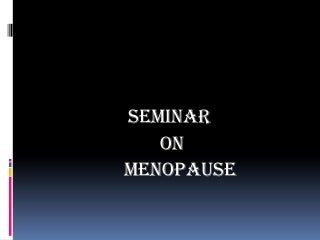On March 18, 1992, the trial court rendered its choice finding the petitioner guilty of the crime charged, and accordingly sentenced him to undergo imprisonment of four (4) months and ONE (1) day of arresto mayor as minimum to 2 (2) years, Four (4) months and ONE (1) day of prision correccional as maximum, with the accessory penalties provided by law, and to pay a tremendous of P200.00 in accordance with Art. It thus affirmed the decision of the Court of Appeals «with the modification that, in lieu of imprisonment and positive, the penalty to be imposed upon the petitioner shall be a high-quality of Three Thousand (P3,000.00) PESOS with subsidiary imprisonment in case of insolvency». Moreover, a written letter containing libelous matter can’t be labeled as privileged when it is published and circulated amongst the general public, as what the petitioner did on this case. Aggrieved by the aforequoted article, the non-public complainant initiated the necessary complaint towards the petitioner, and on May 25, 1984, an Information was filed earlier than the trial court charging the petitioner with libel. On June 19, 1995, the appellate courtroom dismissed the appeal and affirmed the choice of the trial court docket.
The Court rejected the arguments of the petitioner (a) that the phrase «mandurugas» and different phrases and phrases used within the questioned article didn’t impute to private complainant any crime, vice or defect which could be injurious or damaging to his name and popularity and (b) that the descriptive phrases and phrases used should be considered as mere epithets that are a type of «non-actionable opinion», because while they could categorical petitioner’s robust emotional emotions of dislike, they don’t imply to reflect adversely on non-public complainant’s repute. But «any attack upon the personal character of the general public officer on issues which aren’t associated to the discharge of their official features may constitute libel», citing exception number two (2) of Article 354 which refers to «any other act carried out by public officers within the exercise of their capabilities.» The Court held that the petitioner’s article had no reference whatsoever to the efficiency of private complainant’s position as a public relations guide in the Department of Trade and Industry. The Court stated that the final rule laid down in Article 354 of the Revised Penal Code provides that «every defamatory imputation is presumed to be malicious, even if it be true, if no good intention and justifiable motive for making it’s shown «.
The burden is on the facet of the defendant «to show good intention and justifiable motive so as to overcome the legal inference of malice». Further, the Court was not persuaded by the argument of the petitioner that there was no malice on this case, that the prosecution had did not current proof demonstrating that the accused was prompted by private ailing-will or spite or that he didn’t act in response to obligation but acted merely to cause harm to personal complainant, and that the prosecution had failed to discharge its burden of proving malice on the part of the accused past all reasonable doubt. Prescinding from this provision, when the imputation is defamatory, as on this case, «the prosecution want not prove malice on the a part of the defendant (malice the truth is), for the regulation already presumes that the defendant’s imputation is malicious (malice in law)». In rejecting the aforesaid argument, the Court held that though as a rule, it is the fitting and responsibility of a citizen to make a complaint of any misconduct on the pant of public officials, which involves his notice, to these charged with supervision over them, «such complaints must be addressed solely to some official having jurisdiction to inquire into the costs, or power to redress the grievance or has some responsibility to perform or interest in connection therewith.» In the moment case, not one of the homeowners for whom the e-newsletter was published was vested with the facility of supervision over the non-public complainant or the authority to research the charges made towards the latter.

 They understood my downside right away, provided a easy answer, and had been proactive in protecting me updated on their progress. Probably the most horrifying factor about buying a home is that in the event you make a mistake it cannot be simply undone. Unable to just accept defeat, the non-public complainant, on January 16, 1984, wrote a letter to the Estate Management Office of the home Financing Corporation (EMO-HFC) protesting the election of the petitioner as a director and president of the homeowners’ affiliation. He did it therefore, in response to some ethical, social or civic obligation as he was at the moment the President of their homeowners’ association and editor of its publication. He was likewise elected by the new board as president of the homeowners’ affiliation. ABNER PACAIGUE at HOMER AGNOTE, kasama na ng Board Secretary at Pangulo, malamang ay nagulpi sana ang mandurugas. Ang mga nagsipagbigay suporta sa Pangulo at Board Secretary ay sina Gng.
They understood my downside right away, provided a easy answer, and had been proactive in protecting me updated on their progress. Probably the most horrifying factor about buying a home is that in the event you make a mistake it cannot be simply undone. Unable to just accept defeat, the non-public complainant, on January 16, 1984, wrote a letter to the Estate Management Office of the home Financing Corporation (EMO-HFC) protesting the election of the petitioner as a director and president of the homeowners’ affiliation. He did it therefore, in response to some ethical, social or civic obligation as he was at the moment the President of their homeowners’ association and editor of its publication. He was likewise elected by the new board as president of the homeowners’ affiliation. ABNER PACAIGUE at HOMER AGNOTE, kasama na ng Board Secretary at Pangulo, malamang ay nagulpi sana ang mandurugas. Ang mga nagsipagbigay suporta sa Pangulo at Board Secretary ay sina Gng.
This content was generated by công ty xây dựng.
Sila rin ang mastermind sa paninirang pun sa Pangulo sa pamamagitan ng pag-susulat ng panira sa mga pader natin. Dahil sa tagal ay alam na tuloy natin kung papaanong maipapatigil ang kanilang kabulastugan. Kung di dahil sa pakiusap nina Messr’rs. Dala ng mahigpit na pakiusap ng Estate Management Office (EMO) na gawin ang lahat na nararapat upang magkaroon ng katahimikan at pagkakaisa ang mga tiga PML Homes, ang Board Secretary, Mr. Pacis at President F.R. We have now been offering actual property appraisal valuations for the Atlanta mortgage lending market for over 20 years. Real estate investing has been round for 1000’s of years. Of course, actual estate cannot be an exception and have to confront the alterations that the notorious COVID-19 applies to. CENTURY 21®, the CENTURY 21 Logo and C21® are service marks owned by Century 21 Real Estate LLC. You are about to find some hopefully helpful guidelines, ideas, dịch vụ sửa chữa nhà giá rẻ and reminders of the explanation why you should critically consider Newfoundland and Labrador real property.
